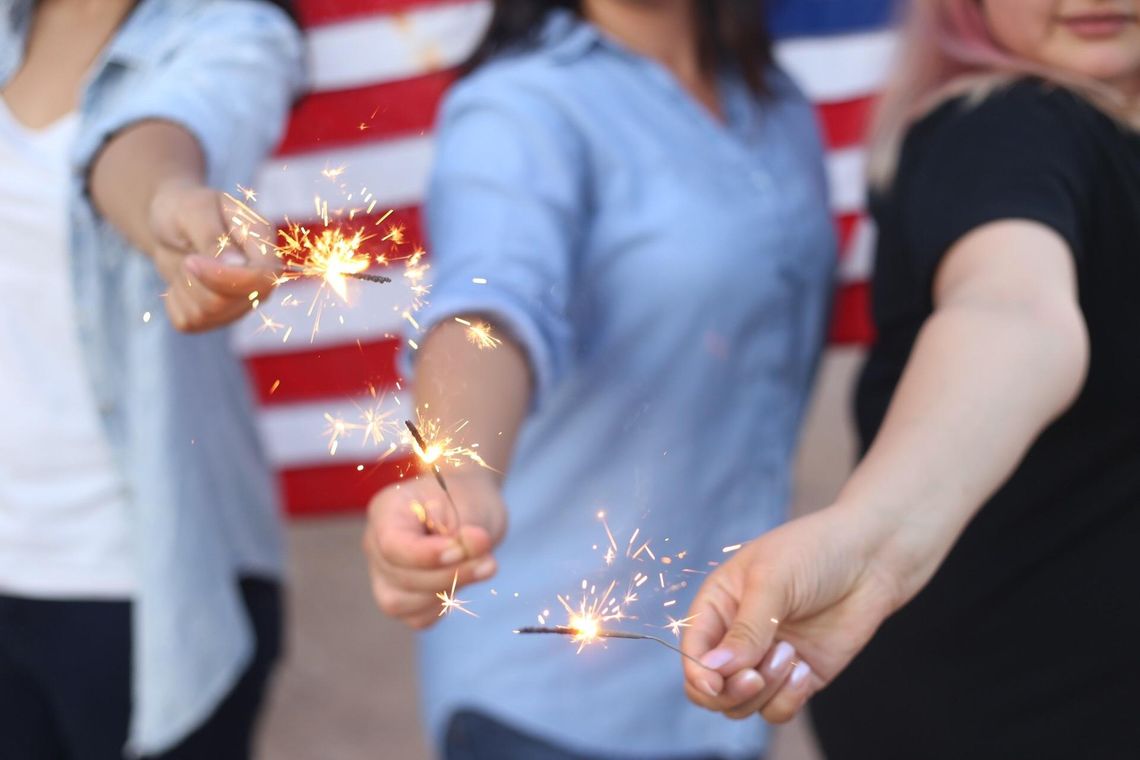The Fourth of July is the busiest day of the year for Fire and EMS departments across the country. That probably doesn’t come as a shock to you. What could go wrong when you combine summer heat with dry grass, parties and fireworks? Now last week I went over burn injuries which make up half of the injuries we will see this Fourth of July, so there will be some overlap with that article. But that just means you are already super smart when it comes to burns and burn treatment.
What are the most common injuries EMS will be called out to evaluate this week? Car accidents, face and eye injuries, hand and finger injuries, swimming accidents and food poisoning. If we look at the weeks before and after the Fourth of July, we find that there are over 240 visits to ERs everyday for firework related injuries during that period. This means there are thousands more that get injured and just treat their injuries themselves. Kids under the age of 15 are most often injured and boys account for 75 percent of them — I’m seeing a recurring theme here. Fire departments will respond to more fires on the Fourth of July than any other day of the year and half of those fires will be from fireworks. This is also the fourth most dangerous driving day of the year resulting in over 400 deaths. So firework related injuries are actually in second place behind car crashes on Fourth of July for injuries.
The fireworks that are most responsible for our misery in July are firecrackers, sparklers, bottle rockets, roman candles and reloadable shells. Which one of these is responsible for the most injuries? Believe it or not its sparklers. These things burn hot (1,800 degrees hot) and can easily cause burns and fires but they also put off those hot sparkling metal embers that can fly off into your face causing burns to your eyes.
Burns to the hands and legs are the most common injury on Fourth of July. This comes from either sparklers or having things like firecrackers explode too close to you. If you encounter a burn from fireworks you can run it under cool tap water or place clean wet dressing to it. Next apply antibiotic cream to it and wrap it up in a sterile dressing. Simple small burns can easily be treated at home. If the burn involves the face you need to seek medical attention or if it is a large burn area especially involving the hands.
Now what if it isn’t a burn, but rather an explosion that blows a finger or hand off? This is clearly a serious injury and 911 should be called immediately. If you can find the fingers or hand place it in a plastic bag and then put the bag in a cooler of ice. You can rinse the injured hand or arm off with tap water but quickly place a bandage or clean towel around the wound and apply pressure until you are seen by EMS. I wish I could post pictures here to show you just how dangerous some of these fireworks are. You can go to YouTube if you really want to see some of the injuries we deal with in the ER from fireworks.
Eyes make up the second most common injury on the Fourth of July. The types of injuries range from burns to lacerations, retinal detachments and rupture of the eyeball. Any injury to the eye needs to be seen by a physician. These are serious and can result in you losing your eyesight. Do not rub your eyes, rinse or apply pressure to them after an injury. Either call 911 or go straight to the ER or urgent care to be seen where they can use numbing drops to get a good exam on your eye and remove any material that might be lodged in there.
Hearing is probably not way up on your list of expected Fourth of July injuries but it should be. If you’ve ever had a firecracker go off right by your ear you know what I’m talking about here. While the initial injury may only result in ringing in your ears for a few days the effects can be lasting and you could end up with some hearing loss. There is no treatment for this kind of injury so best to avoid it all together.
Want to avoid the stomach injuries that come from eating poorly prepared or cooked food on Independence Day? Make sure the meat is thoroughly cooked. Make sure anything with eggs or mayonnaise in it stays refrigerated. Do not prepare vegetables on the same surface as you prepare meat. If you do begin vomiting after eating, consider seeing a doctor to get some Zofran or Phenergan to help stop the nausea. If you develop diarrhea, I like to give patients Bentyl or Donnatol to help ease the symptoms.
Car accidents will be the biggest cause of injuries this Fourth and they can be reduced drastically by doing one thing. Avoid alcohol if you’re going to drive. If you’re going to drive at all this holiday weekend, don’t drink alcohol. So much heartache and misery can be prevented if you just do this one little thing.
Happy Independence Day everyone. I wish you a fun and safe Fourth of July.
--
Dr. John Turner is a family medicine and emergency medicine doctor with 25 years of experience. He is also the owner of My Primary Care Clinic and My Emergency Room 24/7 here in Hays County. Dr. Turner may be reached at 512-667-6087.










